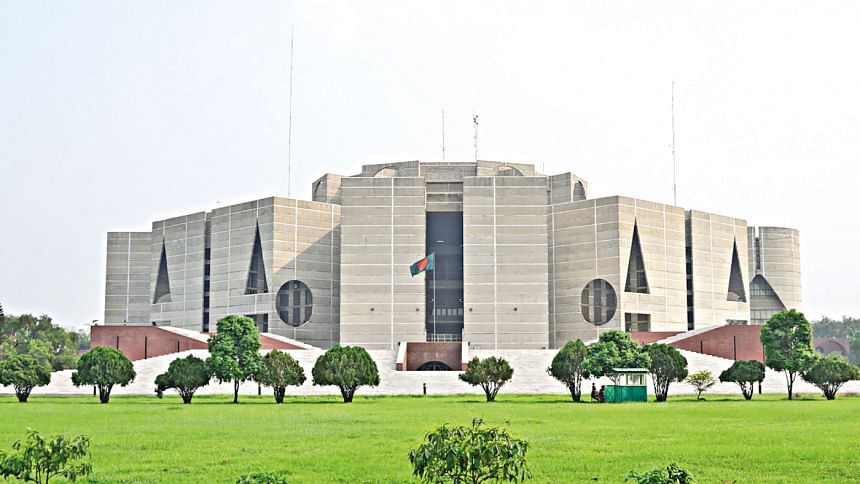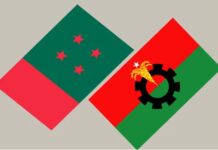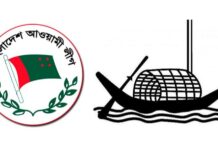
The 12th parliament goes into its maiden session tomorrow in the absence of a “genuine opposition” that can hold the government accountable.
The Jatiyo Party, which appeared ever ready to toe the government line in the last two parliaments, is the main opposition for the third straight term.
Its lawmakers were elected in the seats that were not contested by the ruling Awami League.
Amid speculations regarding who will be the opposition leader, the parliament secretariat yesterday issued a gazette notification saying Speaker Shirin Sharmin Chaudhury recognised JP Chairman GM Quader as the leader of the opposition in parliament and Anisul Islam Mahmud as the deputy leader of the opposition.
The parliament will have no representation from major opposition BNP as the party boycotted this year’s election after its demand for polls under a caretaker government was not met. Earlier, it boycotted the 2014 election for the same reason.
Meanwhile, the AL is apparently selecting who will sit in the opposition benches and deciding the roles of independents in the House.
Only five political parties have representation in this parliament — the second lowest number of parties in the history of the Jatiya Sangsad.
Before this, the lowest number of parties in a parliament was after the February 1996 election. It lasted only 12 days.
Prof Nizam Ahmed, parliamentary affairs expert and former teacher of the public administration department at Chittagong University, told The Daily Star yesterday that representation of only a few parties in parliament is not a good sign for democracy.
About JP’s role, he said, “It is impossible for them to hold the ruling party accountable. Morally, they don’t have right to criticise the ruling party as they were elected with the support of Awami League.”
Nizam said the 12th parliamentary election was essentially AL versus AL-backed independents, with some seats compromised for JP.
“As a result, the parliament will lack a genuine opposition. This seriously undermines democracy.”
The current parliament was formed following the January 7 national election, which was boycotted by 16 of the 44 registered parties with the Election Commission. The polls saw only 42 percent voter turnout.
The BNP and alliestermed it “a dummy election” — an allegation denied by AL.
Apart from the AL, JP won 11 seats, Bangladesh Workers Party, Jatiya Samajtantrik Dal (JSD), and Bangladesh Kalyan Party one seat each, and independent candidates 62 seats.
AL sources said that of the 62 independents, at least 58 were ruling party leaders.
Workers Party and JSD candidates won in the polls under the AL’s electoral symbol — “boat”.
Considering the 58 seats of “AL independents” and two seats of Workers Party and JSD, the total number of seats for AL and its allies stood at 283.
Ruling party insiders said although the AL took several steps, including asking its grassroot-level activists to support some aspirants from other parties, to ensure a diverse representation in parliament, the strategy did not seem to have worked.
Meeting independent lawmakers at the Gono Bhaban yesterday, Prime Minister Sheikh Hasina gave directives on how to make the parliament more participatory and effective.
Jatiyo Party Parliamentary Party, however, at recent a meeting instructed all its MPs to refrain from giving flattering speeches to praise the ruling AL in parliamentary sessions, like they did in the previous two terms.
The first session of the new parliament is set to begin at 3:00pm tomorrow. It will start with the election of the Speaker and deputy Speaker of the House, who will be sworn in by President Mohammed Shahabuddin.
He will also deliver a speech in the first day of the session.
Daily star









